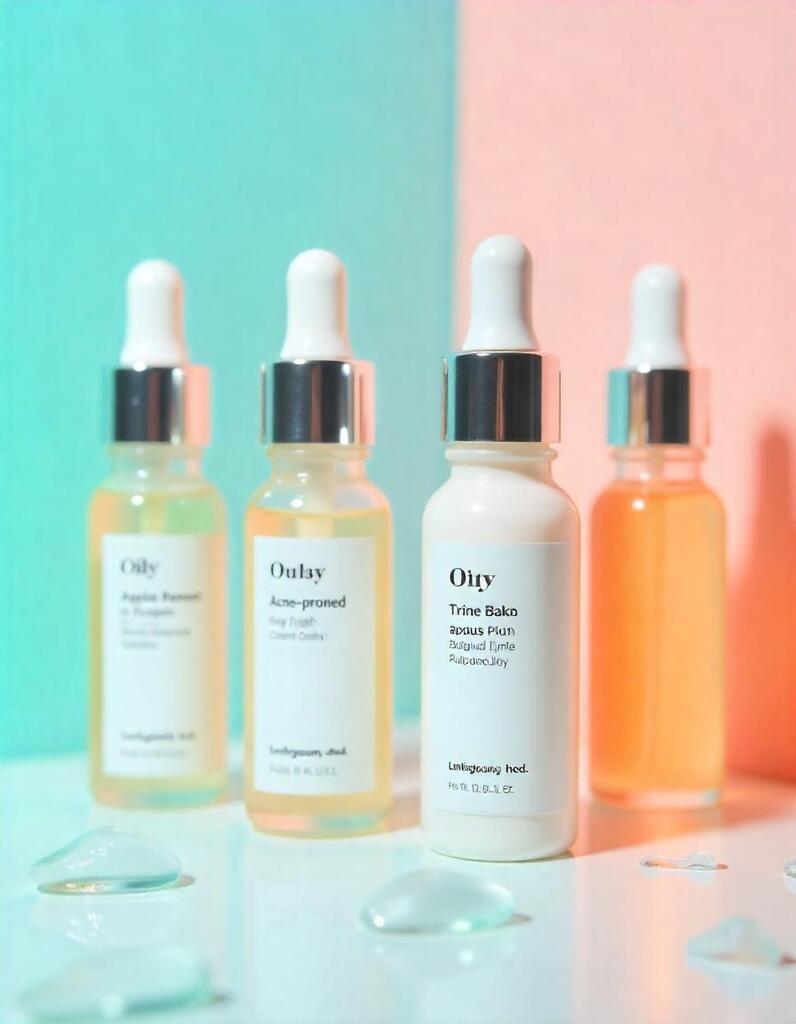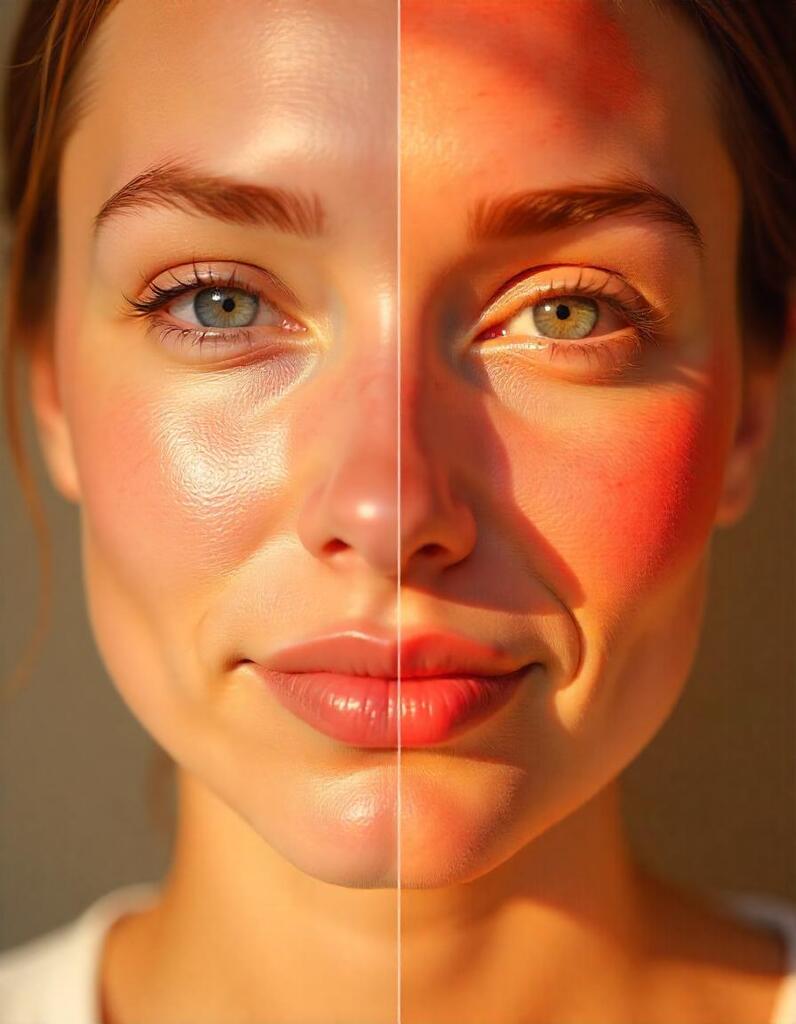Face Serums: The Ultimate Guide to Best Picks

Face serums have revolutionized skincare, offering potent ingredients that penetrate deeply to address specific concerns. Whether you have dry, oily, acne-prone, or mature skin, the right serum can transform your skincare routine. In this guide, we’ll explore the best serums for different skin types, concerns, and goals, ensuring you find your perfect match.
Why Use a Face Serum?

Face serums contain concentrated active ingredients that provide targeted benefits, such as hydration, anti-aging effects, and oil control. Unlike moisturizers, serums are lightweight and absorb quickly, making them a crucial step in any skincare routine.
Best Face Serums for Different Skin Types
1. Best face Serums for Dry Skin
Dry skin requires intense hydration and nourishment. Look for serums with ingredients like hyaluronic acid, glycerin, and ceramides.
- Top Pick: The Ordinary Hyaluronic Acid 2% + B5 – Hydrates and plumps dry skin.
- Why It Works: Hyaluronic acid retains moisture, while vitamin B5 soothes dryness.
2. Best face Serums for Oily Skin
Oily skin benefits from lightweight, non-comedogenic serums that regulate sebum production and minimize pores.
- Top Pick: Niacinamide 10% + Zinc 1% by The Ordinary – Balances oil and reduces blemishes.
- Why It Works: Niacinamide controls oil, while zinc calms inflammation.
3. Best Serum for Acne-Prone Skin
Acne-prone skin needs serums with antibacterial and exfoliating properties to prevent breakouts.
- Top Pick: Paula’s Choice 2% BHA Liquid Exfoliant – Unclogs pores and reduces acne.
- Why It Works: Salicylic acid exfoliates and fights acne-causing bacteria.
4. Best Serum for Combination Skin

Combination skin requires a balanced formula that hydrates dry areas and controls oil in the T-zone.
- Top Pick: Kiehl’s Hydro-Plumping Re-Texturizing Serum – Offers deep hydration without greasiness.
- Why It Works: Glycerin and plant extracts nourish and rebalance skin.
Best face Serums for Specific Concerns
1. Best face Serum for Men

Men’s skin tends to be thicker and oilier, requiring serums that hydrate without causing breakouts.
- Top Pick: Brickell Men’s Restoring Anti-Aging Serum – Firms and hydrates skin.
- Why It Works: Peptides and hyaluronic acid restore elasticity and moisture.
2. Best face Serum for Glassy Skin
Glassy skin is all about achieving a smooth, luminous, and hydrated look.
- Top Pick: Glow Recipe Watermelon Glow Niacinamide Dew Drops – Delivers an instant glow.
- Why It Works: Niacinamide brightens, while watermelon extract hydrates.
3. Best face Serum for Wrinkles and Fine Lines
Mature skin benefits from anti-aging serums that boost collagen and reduce fine lines.
- Top Pick: Skinceuticals C E Ferulic – A powerful antioxidant serum for youthful skin.
- Why It Works: Vitamin C brightens, vitamin E nourishes, and ferulic acid fights aging.
How to Apply a Face Serum Correctly?
- Cleanse your face to remove impurities.
- Apply a toner to prep your skin.
- Dispense a few drops of serum onto your fingertips.
- Gently pat the serum into your skin (avoid rubbing).
- Follow up with a moisturizer to lock in the benefits.
- Apply sunscreen during the daytime.
Potential Adverse Effects of Face Serums

While serums offer numerous benefits, they can sometimes cause unwanted reactions, especially if not suited to your skin type. Common side effects include:
- Irritation and Redness: Some active ingredients like retinol, vitamin C, and exfoliating acids (AHAs/BHAs) may cause redness and irritation, especially for sensitive skin.
- Breakouts: Heavy or oil-based serums may clog pores and trigger acne in oily or acne-prone skin.
- Dryness or Peeling: Overuse of active ingredients such as retinol and salicylic acid can lead to excessive dryness, peeling, or flaking.
- Allergic Reactions: Some ingredients, like essential oils or fragrances, may cause allergic reactions, including itching and swelling.
- Increased Sun Sensitivity: Certain serums, particularly those containing AHAs, BHAs, and retinol, can make the skin more sensitive to the sun, increasing the risk of sunburn.
How to Avoid Adverse Reactions
- Patch Test First: Always test a new serum on a small area of skin before applying it to your face.
- Introduce Slowly: Start by using active serums a few times a week before increasing frequency.
- Use Sunscreen: If using serums with exfoliating acids or retinol, apply sunscreen daily to protect your skin.
- Check Ingredients: Avoid serums with known irritants or allergens specific to your skin type.
FAQs about Face serums
1. Can I use multiple serums in my routine?
Yes! Layering serums is effective, but apply the thinnest formula first and avoid ingredient conflicts (e.g., vitamin C with retinol).
2. How often should I use a face serum?
Most serums can be used daily, but stronger formulations (like retinol) should be used 2-3 times a week to prevent irritation.
3. What is the difference between a serum and a moisturizer?
Serums contain high concentrations of active ingredients for targeted treatment, while moisturizers seal in hydration and protect the skin barrier.
4. Can men use the same serums as women?
Yes! While some products are marketed for men, the ingredients work for all skin types. Men should choose serums based on their specific skin concerns.
5. Do I need a different serum for morning and night?
Yes! Use antioxidant-rich serums (like vitamin C) in the morning and reparative serums (like retinol) at night.
Final Thoughts about Face serums
Face serums are a game-changer in skincare, providing customized solutions for every skin type and concern. Whether you need hydration, acne control, or anti-aging benefits, choosing the right serum can enhance your skincare routine.
For more expert skincare advice, check out this comprehensive guide on serums or learn more from Dermatology Times.
